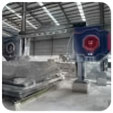Hi, this is Lizzy from Dinosaw ( Not a Robot ). Which Machine ( model ) do you want? Please WhatsApp us now
How to buy your first professional CNC stone router in 2025? This is a business owner's guide to buying the right first CNC stone router for your fabrication shop.
Making the Leap: Why Your Fabrication Shop Needs a CNC Stone Router
For a professional stone fabrication business, moving from manual or semi-automated processes to a fully integrated CNC stone router is the single most important step toward scaling production and increasing profitability. Unlike hobbyist machines, a professional-grade CNC router is not for DIY projects; it is a robust, industrial workhorse designed to precisely and efficiently machine granite, marble, quartz, and other challenging materials, day in and day out.
This guide is for business owners and shop managers who are ready to make that critical first investment. We will walk you through the key considerations, moving beyond basic specifications to focus on the factors that truly impact your bottom line: durability, efficiency, and return on investment (ROI).
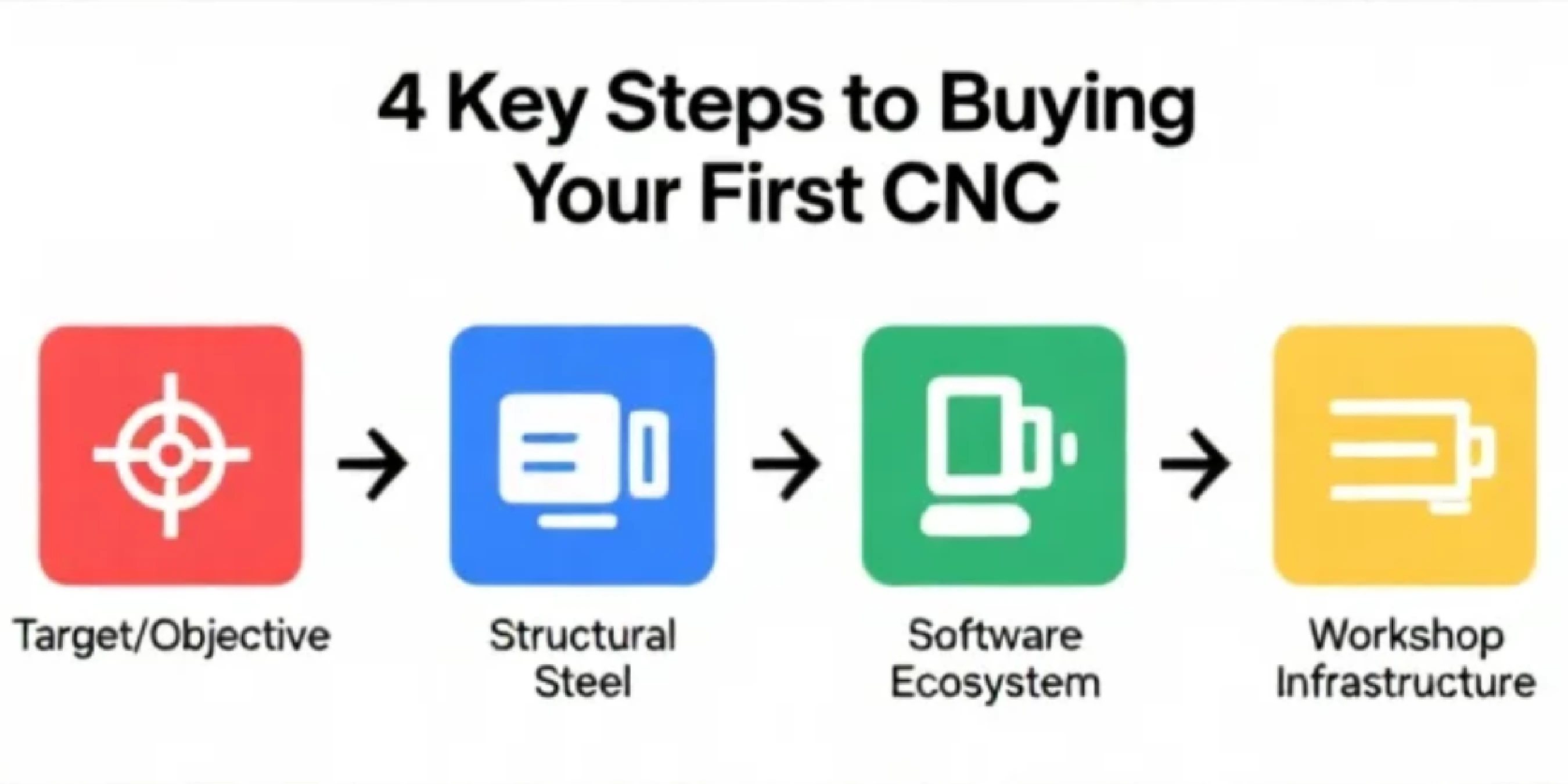
Step 1: Define Your Business Objectives, Not Just Your Projects
Before looking at any machine, clearly define why you are investing. What business problem are you solving?
Increasing Production Capacity?
If your goal is to handle more countertop jobs per week, your focus should be on machines with a large work area (e.g., 10.5x6.5 ft for full slabs), a powerful spindle, and features like an Automatic Tool Changer (ATC) to minimize downtime.
Expanding Service Offerings?
If you want to start offering high-margin services like 3D relief carving, intricate sink cutouts, or complex architectural elements, you'll need to prioritize a machine with high precision, excellent software compatibility, and potentially 4-axis capabilities.
Improving Quality and Consistency?
If your primary goal is to reduce reliance on manual labor and eliminate human error, look for a machine with a heavy, rigid steel frame and a reliable industrial control system. This ensures every piece produced is identical and meets exact specifications.
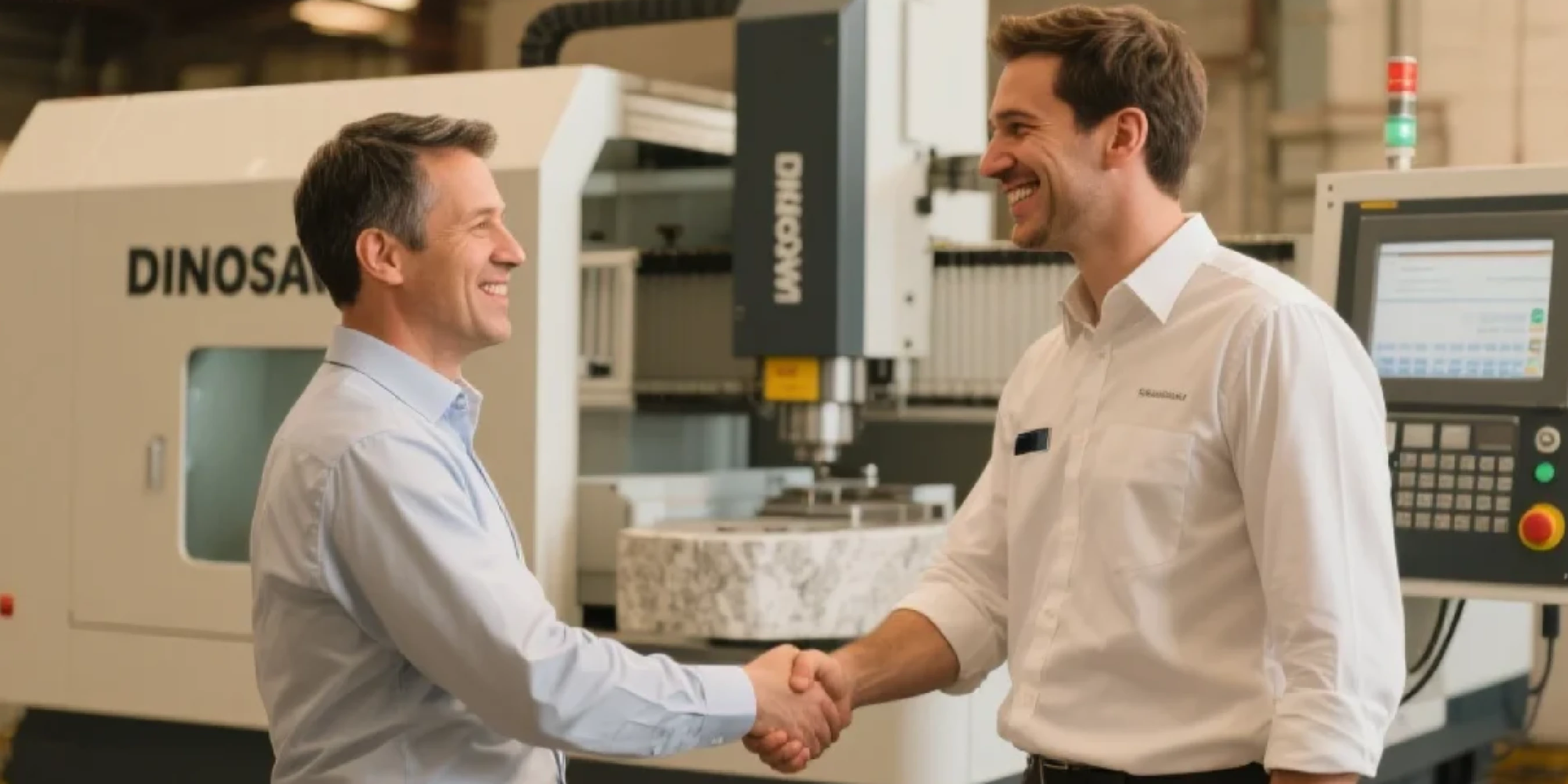
Step 2: Focus on Industrial-Grade Machine Construction
For professional stone fabrication, the machine's build quality is non-negotiable. This is the biggest differentiator from entry-level or hobbyist machines.
The Frame: Look for a heavy-duty, welded steel frame that has been heat-treated for stress relief. This massive structure is essential to absorb the intense vibrations of stone cutting, which is the secret to achieving chip-free edges and maintaining accuracy over many years.
The Spindle: A water-cooled spindle with high torque is a requirement, not an option. For a professional shop, a spindle of at least 5.5kW is a starting point, with 7.5kW or more being ideal for consistently processing dense materials like quartzite.
The Drive System: Look for high-precision drive systems like helical rack and pinion on the X and Y axes and a ball screw on the Z-axis. These industrial components, paired with powerful servo motors (not stepper motors), deliver the speed, accuracy, and reliability needed for a commercial environment.
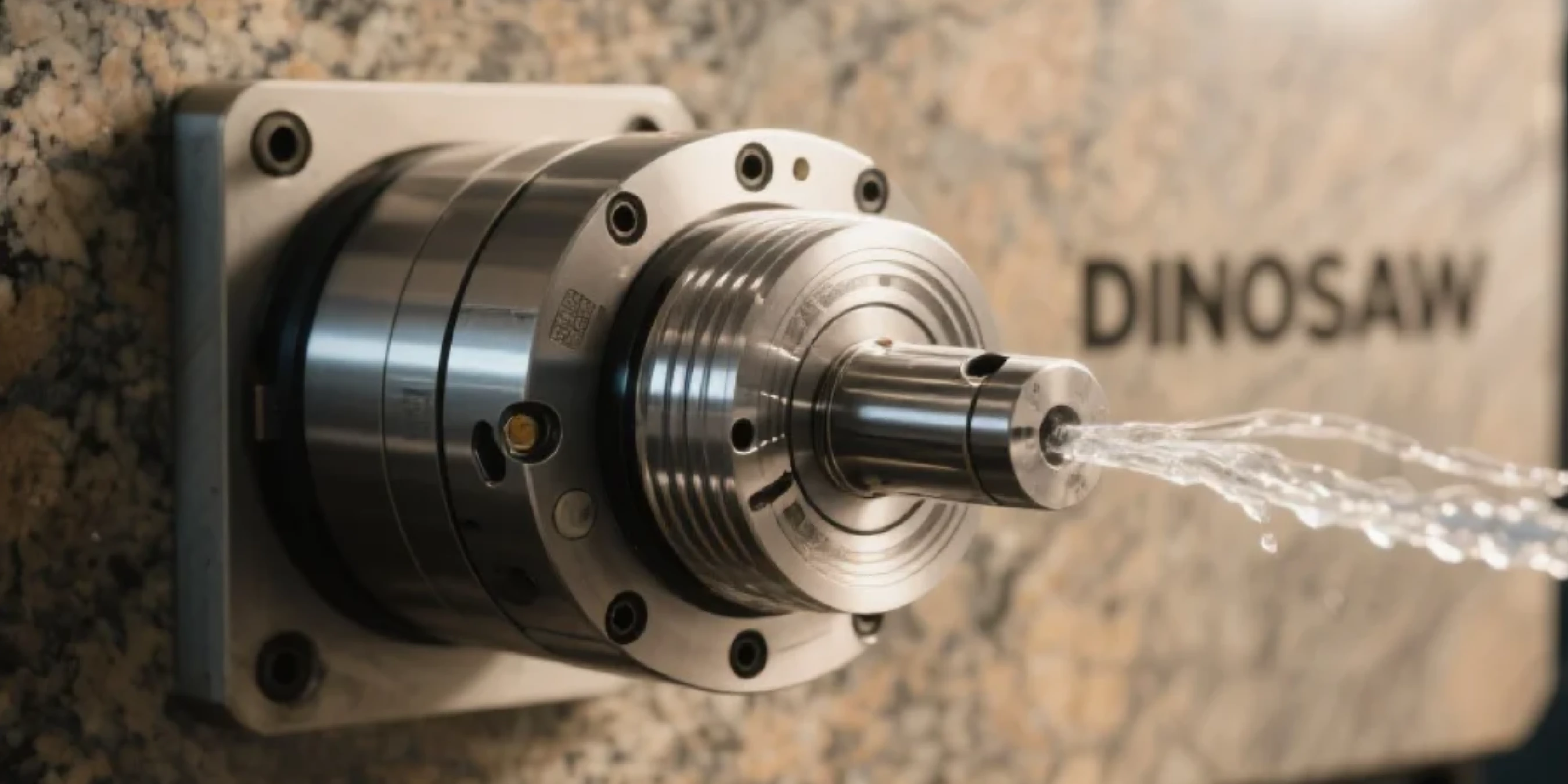
Step 3: Evaluate the Complete Ecosystem: Software, Tooling, and Support
A CNC machine is more than just hardware; it's the center of a production ecosystem.
Software Compatibility: Ensure the machine's control system is compatible with industry-standard CAD/CAM software (e.g., VCarve, Alphacam). Ask about post-processor availability, as this small file is crucial for translating your designs into machine commands.
Tooling Requirements: Your machine is only as good as its diamond tooling. Discuss with the manufacturer the best types of bits for your primary applications. An Automatic Tool Changer (ATC), while a significant upfront cost, can provide a massive ROI by reducing manual intervention and speeding up complex jobs.
After-Sales Support: For a business, downtime is lost revenue. What level of technical support, training, and spare parts availability does the manufacturer offer? A reliable partner like Dinosaw Machine provides comprehensive training and responsive support to ensure your investment is always productive.
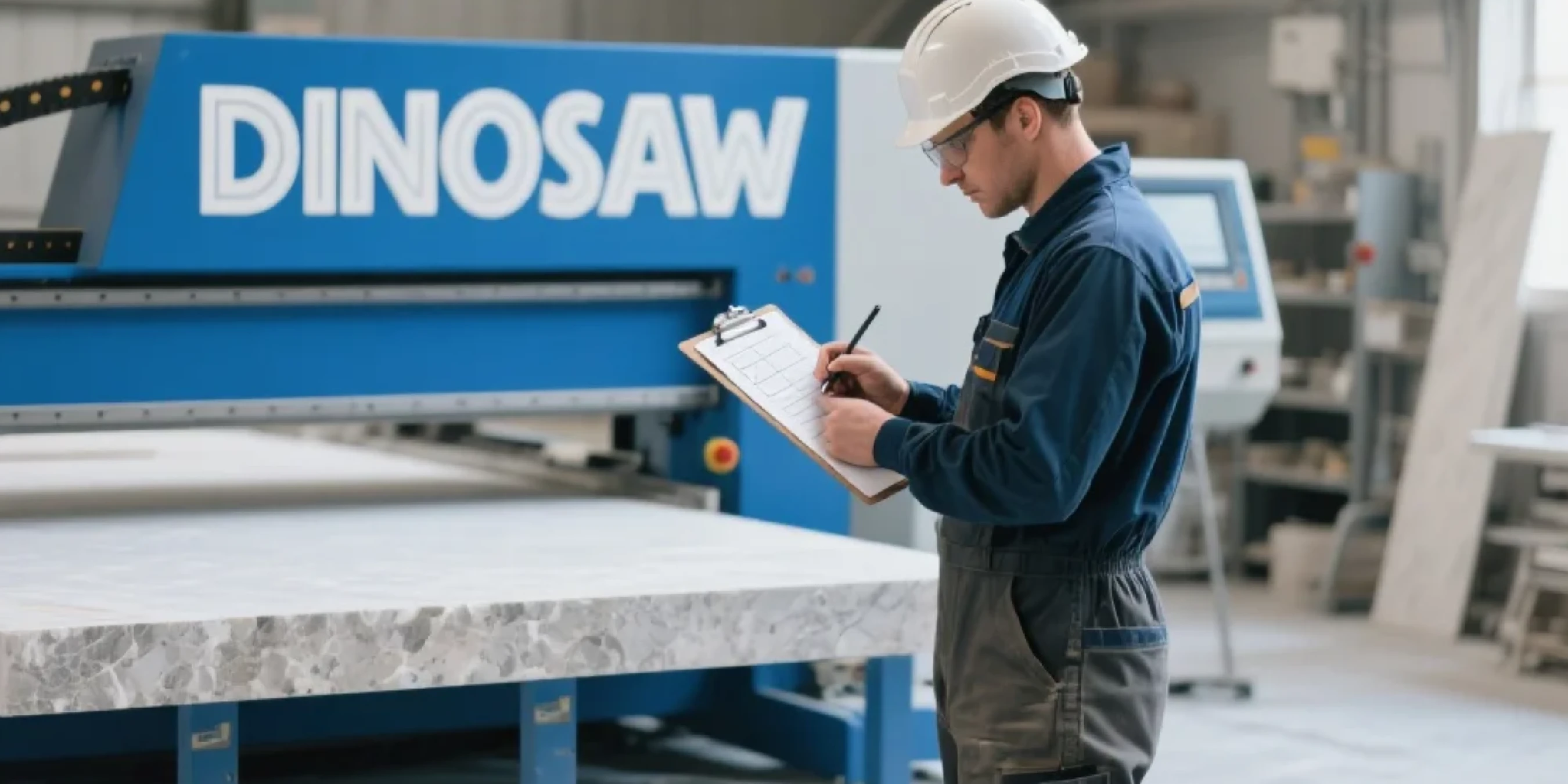
Step 4: Plan Your Shop's Infrastructure
An industrial machine has industrial requirements. Before you buy, prepare your facility.
Power and Air: A professional CNC stone router typically requires a three-phase power supply. You will also need a compressed air supply for features like the ATC.
Foundation and Footprint: Ensure your workshop floor is a level, solid concrete slab capable of supporting the machine's multi-ton weight. Accurately measure your available space, leaving ample room around the machine for loading slabs and conducting maintenance.
Water Management: Plan for an effective water collection and recycling system. This is crucial for cooling the tool and controlling dust.
Conclusion: Your First CNC is a Partner, Not Just a Purchase
Buying your first CNC stone router is a strategic decision that will shape the future of your business. By focusing on your business objectives, prioritizing industrial-grade construction, evaluating the entire ecosystem, and preparing your infrastructure, you can make a confident and profitable choice.
This is more than a purchase; it's an investment in efficiency, quality, and growth. Choose a machine and a manufacturer that can act as a long-term partner in your success.
Ready to take the next step? Contact a Dinosaw Machine expert to discuss your specific needs and get a professional recommendation for your first CNC stone router.


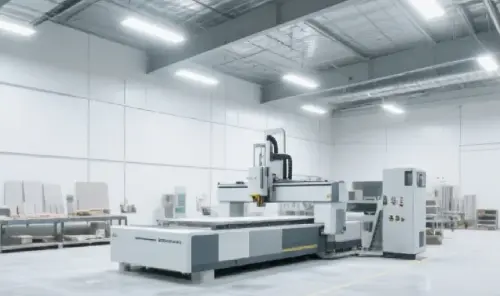
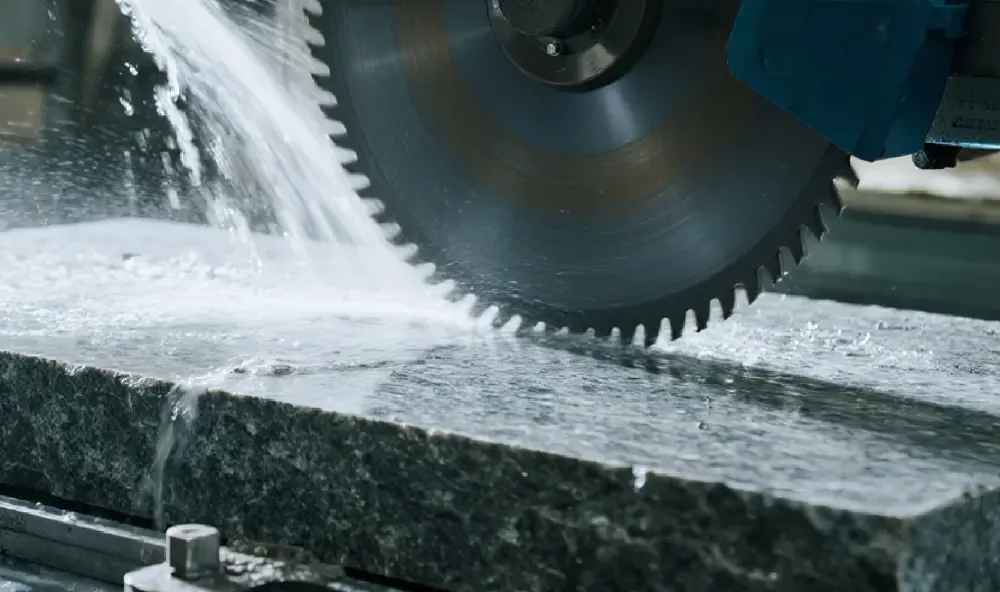



 English
English 中文
中文